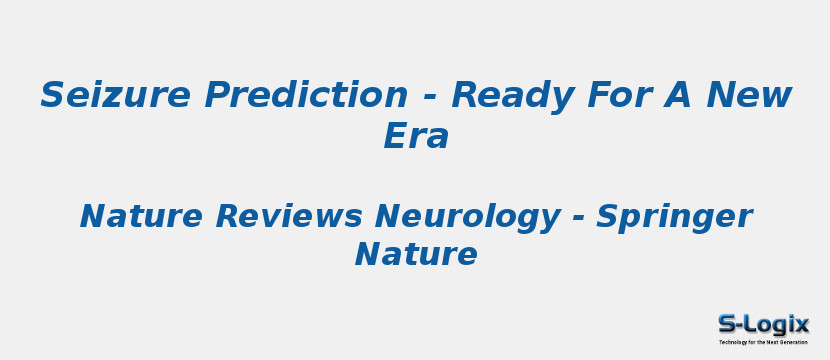Research Area: Machine Learning
Epilepsy is a common disorder characterized by recurrent seizures. An overwhelming majority of people with epilepsy regard the unpredictability of seizures as a major issue. More than 30 years of international effort have been devoted to the prediction of seizures, aiming to remove the burden of unpredictability and to couple novel, time-specific treatment to seizure prediction technology. A highly influential review published in 2007 concluded that insufficient evidence indicated that seizures could be predicted. Since then, several advances have been made, including successful prospective seizure prediction using intracranial EEG in a small number of people in a trial of a real-time seizure prediction device. In this Review, we examine advances in the field, including EEG databases, seizure prediction competitions, the prospective trial mentioned and advances in our understanding of the mechanisms of seizures. We argue that these advances, together with statistical evaluations, set the stage for a resurgence in efforts towards the development of seizure prediction methodologies. We propose new avenues of investigation involving a synergy between mechanisms, models, data, devices and algorithms and refine the existing guidelines for the development of seizure prediction technology to instigate development of a solution that removes the burden of the unpredictability of seizures.
Keywords:
Seizure Prediction
Machine Learning
Deep Learning
Author(s) Name: Levin Kuhlmann, Klaus Lehnertz, Mark P. Richardson, Björn Schelter & Hitten P. Zaveri
Journal name: Nature Reviews Neurology
Conferrence name:
Publisher name: Springer Nature
DOI: 10.1038/s41582-018-0055-2
Volume Information: volume 14, pages618–630 (2018)
